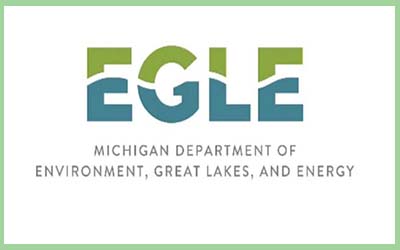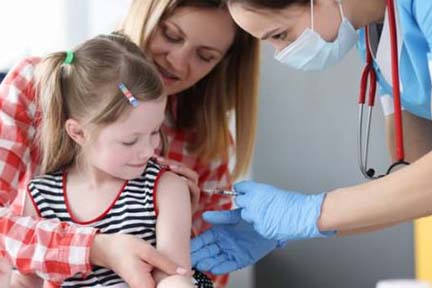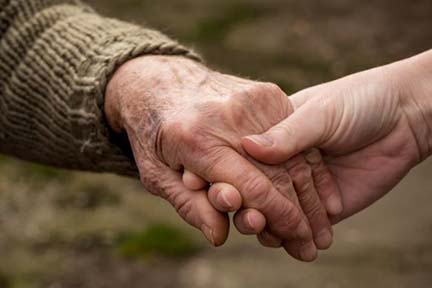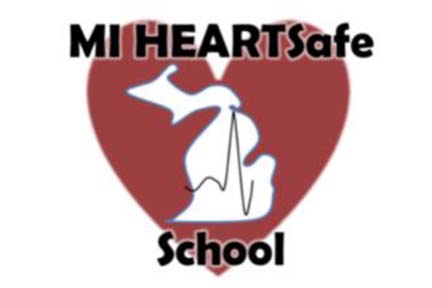
$2 million in grants to help water quality issues
|

|

Press Release FOR IMMEDIATE RELEASE: Nov. 3, 2021 CONTACT: Chelsea Wuth, 517-241-2112, [email protected] Children ages 5 to 11 now eligible for COVID-19 vaccine LANSING, Mich. – The Michigan Department of Health and Human Services (MDHHS), doctors and state public health leaders today urged Michigan parents to get their children ages 5 to 11 vaccinated with Pfizer-BioNTech’s COVID-19 pediatric vaccine, which received emergency use authorization for this age group from the U.S. Food and Drug Administration (FDA) and was recommended by the U.S. Centers for Disease Control and Prevention’s (CDC) Advisory Committee on Immunization Practices (ACIP) on Nov. 2. MDHHS is recommending providers begin vaccinating children ages 5 to 11 years as soon as possible. “Being able to vaccinate children ages 5 to 11 with the safe and effective COVID-19 vaccine brings us hope and also an additional opportunity to urge all eligible Michiganders to get vaccinated,” said Dr. Natasha Bagdasarian, MDHHS chief medical executive. “We know these vaccines work and protect our children and their families. Even healthy children can suffer serious affects from COVID-19. The vaccines remain our way out of the pandemic, and more than 825,000 more children in our state are now eligible.” In Michigan, there have been more than 201,000 confirmed COVID cases in those age 19 and younger, and 20 deaths have been reported in ages 10 to 19 as of Nov. 2. More than 450 children under the age of 12 become infected with the virus each day. “It is important to get children ages five and up vaccinated as quickly as possible to save even more lives and reduce serious illness,” said MDHHS director Elizabeth Hertel. “Getting the safe and effective vaccines are an effort that every eligible Michigander can take to reduce the spread of COVID-19 and its variants, and to help end this pandemic. Working together we can help some of our youngest Michiganders get back to more normal activities with friends, sports teams, classmates and more.” Based on data provided by Pfizer, the vaccine was shown to be nearly 91% effective at preventing symptomatic disease from COVID-19 in this age group. The pediatric formulation of the Pfizer-BioNTech vaccine is administered as a series of two doses, 21 days apart, at one-third the amount of the adult dosage. Clinical trial participants demonstrated a strong immune response one month after the second dose. The most commonly reported side effects, typically lasting one to three days, were pain at the injection site, tiredness, headache, chills, muscle pain, fever and joint pain. With the exception of pain at the injection site, more children reported these side effects after the second dose than after the first dose. More than 825,000 Michigan children will now be eligible to receive the Pfizer-BioNTech vaccine. With more than 4,000 vaccine providers across the state, including family physicians and pediatricians, urgent cares, local health departments, federally qualified health centers and pharmacies, there are plenty of providers and vaccines available for eligible children. MDHHS has ordered 287,700 doses for the initial rollout, which is the full allocation provided by CDC for the launch of vaccination efforts. Vaccines will be available immediately beginning Nov. 3, and parents can find a vaccine by visiting Vaccines.gov or by calling 211. “Vaccinating the children of Michigan against COVID will make it safer to continue in-person schooling, visit with family members, especially over the holidays, and will allow Michigan kids to resume normal activities they have missed during this pandemic,” said Dr. Matthew Hornik, DO, FAAP, president of the Michigan Chapter of the American Academy of Pediatrics. “Children have struggled tremendously during this pandemic, the COVID vaccine is a game changer for 5 to 11 year olds. Pediatricians are available to answer any questions or concerns parents have regarding the COVID-19 vaccine and are gearing up to administer the vaccine to children as soon as it is approved by the CDC.” Vaccination is the best protection against COVID-19. To date, more than 42% of children ages 12 to 15 have received their first dose the safe and effective Pfizer-BioNTech COVID-19 vaccine. Data from the FDA and CDC show that children 5 to 11 years of age account for approximately 9% of COVID-19 cases in the U.S. overall, and approximately 40% of pediatric cases. COVID-19 has infected 1.9 million children ages 5 to 11 nationwide and hospitalized 8,300. About one-third of hospitalized children required treatment in the ICU. 146 children have died, and over 5,000 have developed Multisystem Inflammatory Disorder (MIS-C). From January to October, unvaccinated Michiganders accounted for 93.1% of COVID cases, 90.7% of hospitalizations and 90.5% of deaths. Michigan residents seeking more information about the COVID-19 vaccine can visit Michigan.gov/ For the latest information is available visit Michigan.gov/Coronavirus and C |


Press Release FOR IMMEDIATE RELEASE: Nov. 1, 2021 CONTACT: Bob Wheaton, 517-241-2112, wheatonb@ Gov. Whitmer announces Macomb, Oakland residents affected by summer flood can apply for one-time food assistance payment Disaster Food Assistance Program helps low-income households that did not already receive food assistance benefits during July LANSING, Mich. – Low-income residents of Macomb and Oakland counties who were affected by late June flooding and did not receive food assistance benefits during July 2021 can soon apply for federal Disaster Food Assistance Program benefits, Gov. Gretchen Whitmer announced today. The Michigan Department of Health and Human Services (MDHHS) will accept in-person applications during specified hours on six days at locations in each of the two counties beginning Wednesday, Nov. 3. Households determined to be eligible will receive a one-time-only benefit to spend on food that is $430 for a household of two and $782 for a household of four. “Michiganders in Macomb and Oakland counties were among those who saw their homes, property, and prized possessions damaged by historic flooding this year,” Gov. Whitmer said. “In Michigan we look out for one another, and as governor, I want to ensure that every family can recover and thrive through difficult times. I am proud of the work MDHHS is doing to deliver disaster food assistance to impacted families in Macomb and Oakland.” In September Whitmer received approval from President Joe Biden of her request for a presidential disaster declaration related to the summer floods to be extended to Macomb and Oakland counties. Previously, the president approved a similar request for Wayne and Washtenaw counties, which allowed eligible residents of those two counties to apply for Disaster Food Assistance in August. Now USDA Food and Nutrition Service has approved the federal disaster food benefits for the two additional counties. MDHHS will assist impacted residents in applying for Disaster Food Assistance Program benefits. To be eligible, applicants must:
“Addressing food insecurity is always a priority for MDHHS,” said Elizabeth Hertel, the department’s director. “When times are tough – whether from a once-a-decade pandemic or historic flooding – it’s even more important for us to help our neighbors so they don’t have to worry about feeding their families,” Under federal requirements MDHHS will complete an in-person interview with each applicant before the disaster food assistance can be approved. Applicants must provide verification of their identity and are encouraged to bring proof of residence, income, and liquid assets such as the amount of money in their bank accounts during the disaster period, if possible. Proof of citizenship is not required. Face masks will be required at all sites. Applicants are asked to bring their own mask if possible, however, masks will be available if needed. In both counties, applications will be accepted:
Residents can apply at three Kensington Church locations:
People who are elderly or have a disability will have access to prioritized lines, seating, water, handicap-accessible parking and restrooms, and other accommodations as needed. Households approved for Disaster Food Assistance Program benefits will be issued a Bridge Card, an electronic benefits card similar to a debit card that can be used to redeem their food assistance benefits at eligible retail stores and farmers markets. Benefits will be available 24 hours after approval. Households should redeem the benefits promptly. For a list of SNAP authorized retailers, including farmers markets and farm stands, please see USDA’s SNAP retailer locator. In August, MDHHS provided $11.5 million in federal disaster food assistance benefits to residents of Wayne and Washtenaw counties. More details about disaster food assistance are available at Michigan.gov/FoodAssistance |

Pontiac, Michigan – October is Infant Safe Sleep Awareness Month and the Oakland County Health Division is reminding residents to follow infant safe sleep practices during naps and bedtime. According to the Michigan Department of Health and Human Services, a baby dies every three days from a sleep-related cause in Michigan. Research from the Michigan Public Health Institute shows that 95 infants died due to sleep-related causes in Oakland County from 2010-2019.
“Many of these deaths are attributed to baby sharing the same sleep space with other people and objects in sleeping spaces,” said Leigh-Anne Stafford, director for Oakland County. “Following safe sleep practices can help ensure baby is safer while sleeping.”
Take these steps to help keep baby safe while sleeping:
Examples of sleep-related infant deaths include: suffocation by another person rolling over on baby when sleeping on the same sleep surface, strangulation when blankets wrap around baby’s airway, and choking from baby sleeping on their stomach and spit up going down their air tube.
To review current crib, bassinet and pack-n-play safety standards, visit https://www.cpsc.gov/SafeSleep
To learn if a crib, bassinet or pack-n-play has been recalled, visit www.cpsc.gov/recalls/.
As part of the National Institute of Child Health and Human Development’s Sudden Infant Death Syndrome (SIDS) Awareness Month campaign, Oakland County Health Division encourages caregivers to participate in #SafeSleepSnap on social media. Post a picture on social media of your baby sleeping as recommended by the American Academy of Pediatrics guidelines and tag your post with #SafeSleepSnapOC. With your permission, your photo could be used as part of future safe sleep campaigns.
More information about safe sleep can be found on the Michigan Department of Health and Human Service’s website https://www.michigan.gov/mdhhs/0,5885,7-339-71548_57836—,00.html or by contacting Nurse on Call at 800-848-5533 or [email protected]. Nurse on Call is available 8:30 a.m. to 5:00 p.m., Monday through Friday. For up-to-date public health information, follow @publichealthOC on Facebook and Twitter.
For media inquiries only please contact Bill Mullan, Oakland County media and communications officer, at 248-858-1048.

 |
Press Release
FOR IMMEDIATE RELEASE: Oct. 28, 2021
CONTACT: Chelsea Wuth, 517-241-2112, [email protected]
MDHHS issues RFP for senior center wellness program
LANSING, Mich. – The Michigan Department of Health and Human Services (MDHHS) has issued a Request for Proposals (RFP) for Senior Center Wellness Program.
Eligible applicants are multipurpose senior citizen centers located within the state of Michigan. Private housing facilities with senior activity programs are not eligible.
The focus of the Senior Citizen Wellness Program is to support health-related senior programs at multipurpose senior citizen centers. The programs funded through this grant should include mental and physical health maintenance and improvement for senior participants.
Proposed work must fall within one of the following areas: physical activity, nutrition, chronic illness and self-management, depression, social isolation, fall prevention, caregiver education and burnout prevention, medication management, and pandemic/epidemic (COVID-19) education and information. Applicants may submit more than one application, but MDHHS will award no more than $5,000 per applicant for a program area.
MDHHS will prioritize applications that demonstrate incorporation of evidence-based health promotion and disease prevention programs that include matching funding and are from applicants who submit multiple applications requesting funding across multiple program areas.
The award period begins Feb. 1, 2022, and ends Sept. 30, 2022. MDHHS expects to award approximately $150,000 to fund approximately 30 projects.
Grant applications must be submitted electronically through the EGrAMS program by 3 p.m. on Nov. 30.
For more information or to apply, visit the EGrAMS website and click the “About EGrAMS” link on the left panel to access the “Competitive Application Instructions” training manual. The complete Request for Proposal document can be accessed on the EGrAMS website.

Press Release FOR IMMEDIATE RELEASE: Oct. 27, 2021 CONTACT: Chelsea Wuth, 517-241-2112, [email protected] Virtual award ceremony announced for 163 MI HEARTSafe Schools during the 2020-2021 school year LANSING, Mich. – The Michigan Department of Health and Human Services (MDHHS) and Michigan Department of Education (MDE), American Heart Association, Michigan High School Athletic Association (MHSAA) and Michigan Alliance for Prevention of Sudden Cardiac Death of the Young (MAP-SCDY) will virtually celebrate 163 schools receiving the MI HEARTSafe School designation for the 2020-2021 school year on Oct. 28. Since the program began in 2013, 649 schools have earned this honor. With schools returning to in-person instruction, preparation for cardiac emergencies has never been more important. This year, 163 schools are being recognized for efforts to keep up with preparedness activities during the 2020-2021 school year. There are 54 schools receiving the award for the first time. To receive a MI HEARTSafe School designation, schools must have:
“Sudden cardiac death claims the lives of more than 250 Michigan children and young adults every year,” said Dr. Natasha Bagdasarian, MDHHS chief medical executive. “Having schools prepared for cardiac emergencies can help decrease the number of these tragedies and prepare school employees to have the training necessary to respond in a timely manner and avert what could be a life-threatening situation.” Keeping up with the MI HEARTSafe School criteria is vital for maintaining a safe environment for schools. Resources to help meet the criteria are available on the MI HEARTSafe School website. MAP-SCDY will also be hosting a virtual workshop in January to educate schools on how to become a MI HEARTSafe School. “We are proud to support Michigan’s HEARTSafe schools,” said State Superintendent Dr. Michael Rice. “Ensuring schools are prepared for sudden cardiac emergencies through planning, training and life-saving AEDs is an important part of having safer learning environments for students, staff and the community.” This is MI HEARTSafe Schools program’s eighth year. A HEARTSafe designation lasts for three years, and 45 schools received their third MI HEARTSafe award this year. It is encouraging and commendable to have schools continue to renew the designation every three years. A total of 477 schools are designated as MI HEARTSafe Schools. A list of participating schools is available online. For more information about the MI HEARTSafe Schools program, visit Migrc.org/miheartsafe or email. |